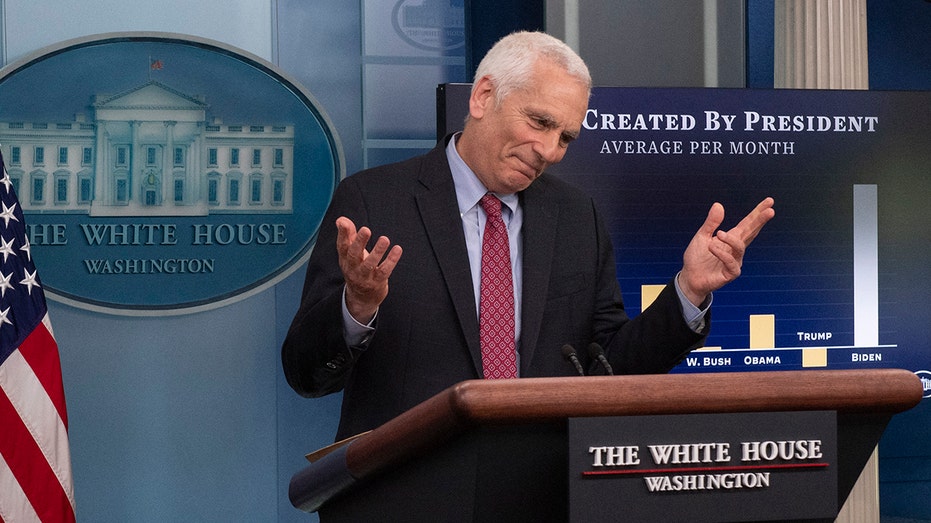Biden economic adviser previously defined recession as two consecutive quarters of negative growth
Recession 'typically defined as two consecutive quarters of declining growth,' Biden economic adviser wrote in 2019
A top member of President Biden's economic team previously acknowledged the definition of a recession was two consecutive quarters of negative growth.
"One percent growth isn’t a recession, which is typically defined as two consecutive quarters of declining growth," Jared Bernstein, a member of the White House Council of Economic Advisers (CEA), wrote in a column for Foreign Affairs magazine in September 2019.
TOP TRUMP WH ECONOMIST SLAMS BIDEN ADMINISTRATION'S 'RECESSION' SPIN
U.S. economic growth fell 0.9% during the second quarter, covering April through June, the Department of Commerce's advanced gross domestic product (GDP) estimate released Thursday showed. The report marks the second consecutive quarter of declining growth, meaning the U.S. has entered a technical recession, according to Bernstein's 2019 comments.
US enters technical recession as economy shrank 0.9% in Q2
The U.S. enters a recession following two quarters of negative GDP growth. FOX Business' Edward Lawrence with more.
However, Bernstein and other White House officials have pushed back on that same technical definition in recent days in anticipation of the Commerce Department data release. Biden's economic advisers have instead pointed to the definition outlined by the National Bureau of Economic Research (NBER), a nonpartisan economic analysis group.
The NBER broadly defines a recession as a "significant decline in economic activity that is spread across the economy and that lasts more than a few months." In the past, the group has waited several months to officially declare that a recession has occurred.
FED'S POWELL SAYS HE DOES NOT THINK US ECONOMY IS IN A RECESSION
"Based on consumer spending, based on payroll employment, based on where the unemployment rate is, I think we can confidently say that these numbers that we’re posting are very much inconsistent with a recessionary call, given where we are right now," Bernstein told reporters on July 18.

CEA member Jared Bernstein speaks to reporters on April 1. (Roberto Schmidt/AFP via Getty Images / Getty Images)
In addition, Biden predicted the U.S. was "not going to be in a recession" on Monday, the CEA released a blog post saying the technical definition is "neither the official definition nor the way economists evaluate the state of the business cycle," and the Treasury Department published a report saying data indicated the economy was strong.
On Thursday, Biden blamed the declining growth on the Federal Reserve's attempt to slow inflation through a series of interest rate hikes, in a statement following the Commerce Department report. The president didn't mention whether he believed the U.S. was currently in a recession.
CLICK HERE TO READ MORE ON FOX BUSINESS
"Coming off of last year’s historic economic growth – and regaining all the private sector jobs lost during the pandemic crisis – it’s no surprise that the economy is slowing down as the Federal Reserve acts to bring down inflation," Biden said. "But even as we face historic global challenges, we are on the right path and we will come through this transition stronger and more secure."
The White House didn't immediately respond to a request for comment.






















